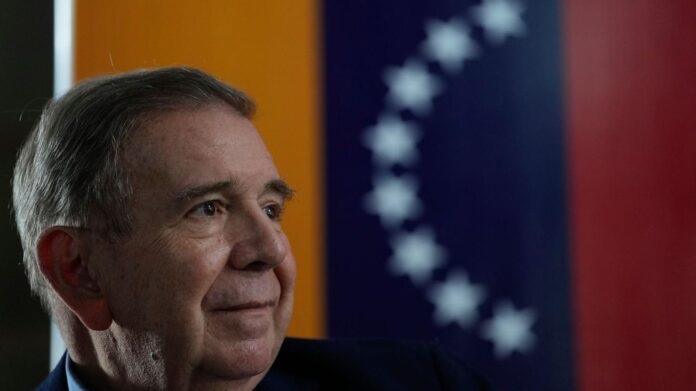
Around six weeks after the presidential election in Venezuela, which was overshadowed by allegations of fraud, opposition candidate Edmundo González has left the country. He left Venezuela’s capital Caracas for Spain on a Spanish Air Force plane at his own request, the Spanish Foreign Ministry announced.
González had been in the Spanish embassy in Caracas for days and had asked the EU country for asylum, Venezuela’s Vice President Delcy Rodríguez wrote on Instagram. There had been contact between the two governments, and Venezuela had granted González safe passage in the interests of political peace. The opposition initially made no public statements on this. It is unclear to what extent González’s departure will change the political situation.
Recommended editorial content
Here you will find external content selected by our editors that enriches the article with additional information. You can display or hide the external content with one click.
I agree to the external content being displayed to me. This means that personal data can be transmitted to third-party platforms. You can find more information about this in the data protection settings. You can find these at the very bottom of our page in the footer, so that you can manage or revoke your settings at any time.
After the presidential election on July 28, the party-line electoral authority declared the authoritarian head of state Nicolás Maduro, who has been in power for eleven years, the winner. However, it did not publish the detailed results. The opposition accuses the government of electoral fraud and claims victory for González.
It published data which it said represented the results from more than 83 percent of the voting districts. According to this, González received 67 percent of the votes and Maduro only 30 percent. The USA and several Latin American countries recognise González as the election winner. The European Union also doubts the official election result.
González wanted with arrest warrant
González, 75, became a candidate after opposition leader María Corina Machado was banned from holding public office due to alleged irregularities during her time as a member of parliament. A court issued an arrest warrant for González last week. He was accused of usurping office, inciting disregard for the law, conspiracy and sabotage, among other things.
González ignored three summonses from the Attorney General’s Office. The former diplomat’s whereabouts were recently unknown. Machado is also in hiding. Maduro said both belong behind bars.
The election sparked protests that were violently suppressed by the state. According to the human rights organization Provea, 25 people were killed and more than 2,400 were arrested. The opposition denounced arbitrary arrests of some of its representatives.
Recommended editorial content
Here you will find external content selected by our editors that enriches the article with additional information. You can display or hide the external content with one click.
I agree to the external content being displayed to me. This means that personal data can be transmitted to third-party platforms. You can find more information about this in the data protection settings. You can find these at the very bottom of our page in the footer, so that you can manage or revoke your settings at any time.
Venezuela bans Brazil from representing Argentina
Six opposition members had already sought refuge in the Argentine embassy in Caracas in March and are still there. After Argentina’s diplomats were expelled from Venezuela in a dispute over the election result, Brazil has been managing its neighbouring country’s embassy since August. This will no longer be permitted, the Venezuelan government announced on Saturday. The reason is evidence that terrorist activities and assassination plots against Maduro and Vice President Rodríguez were planned in the embassy.
According to Argentina’s government, the embassy has been surrounded by Venezuelan security forces and secret service agents since Friday evening (local time). On Friday, Argentina asked the prosecution of the International Criminal Court in The Hague to request an arrest warrant against Maduro.
Some countries do not recognize Maduro’s victory
Maduro’s previous re-election in 2018 had not been recognized by many countries. The then parliamentary president, Juan Guaidó, declared himself interim president, but was unable to assert himself in the country – mainly because the military stood behind Maduro. Maduro had become president in 2013 after the death of Hugo Chávez as his designated successor.
Venezuela suffers from mismanagement, corruption and international sanctions. More than 80 percent of the population lives below the poverty line. According to UN figures, more than seven million people – around a quarter of the population – have left the country in recent years.
© dpa-infocom, dpa:240908-930-226294/3
This is a message directly from the dpa news channel.
